|
By Sheen Players: 1 Platforms: Nintendo Switch, XBox One, XBox Series XS, PlayStation 4, PlayStation 5 I'm a sucker for school management sims, and I play just about any I can get my hands on. (Check out my review for Let's School HERE for an example!) Spellcaster University actually popped up on my radar a few years ago, as it seemed to be a magic-centric alternative to Two Point University. (Even though it came out first.) Needless to say, I was excited when I heard that it would be coming to consoles. Developed by Sneaky Yak Studio, and published by Red Art Games, it's available now on all major platforms, and we're going to be taking a look at it today on the Nintendo Switch. There's a lot to go over in this one, so let's dive right in! Spellcaster University takes place in a world where two opposing forces, human and orc, regularly put aside their differences to take out the Darkness that descends upon the land every like clockwork every century or so. This arrangement has worked since time immemorial, but a simple clerical error made it so that the most recent invasion was incorrectly calculated. Both human and orc were taken completely by surprise, and the forces of evil quickly went to work to eradicate the schools of magic that they realized would be the biggest threat to their rise to power. You play the role of a Headmaster who has taken over from the one that died before you, and it's your job to re-establish the magic academies and hopefully bring down the Lord of Darkness and his cronies once and for all. Well, you won't be doing any of that of course, your students will. It's a simple but interesting setup, and the groundwork for the game's offbeat humor is laid down immediately. There is something of a tutorial, but much of the game unfolds before you simply by playing. Part of me wishes that there was more to discuss here as far as plot goes, but these sorts of games live and die by their gameplay, so let's go ahead and move on to that topic now. Describing Spellcaster University's gameplay is a rather difficult task, as there are a lot of gameplay elements tossed into this deceptively simple game. Screenshots may make it look like it's something of a tower management sim, but there's so much more to it than that. For starters, just about everything in the game is put into play via cards. These cards are mostly tied to the various schools of magic that your university can focus on, though there is a "basic" deck too. Each card in your hand will let you place a room or item, recruit students, start an event or quest, give you an ingredient for alchemy, and so on. Since cards make up the core gameplay loop, it makes sense that getting more of them is one of your primary goals. Acquiring more cards can be done via events and through missions, but you'll most often acquire them by using gold or mana. Gold and mana are earned based via your school, with the amount you get being modified by the current state of your curriculum, and your student body. Drawing from a deck gives you a choice between three cards, and the cost to draw again increases each time you use that particular deck. This keeps you from being able to draw too many cards too quickly, but it also means that things slow down considerably once you've been playing for a while. All this take of cards may make it sound like Spellcaster University is a deck-building game, but that's only one part of its very complicated equation. Cards aside, there's of course the matter of actually building and running your school. You can try to make a "jack of all trades" type of university, but it makes far more sense to focus on a 2-3 complementary schools of magic. The schools of magic that you'll be focusing on in each run are sometimes chosen for you by the cards you're dealt at the beginning of the game. You are able to move yourself towards something different through careful choices, but some runs and starting setups seem to favor some schools over others. Once your school is built, your next task is to recruit students and harvest mana. Education is great and all, but you can't save the kingdom without money and resources. One can't fight The Lord of Darkness and his minions simply on thoughts and prayers after all. Students enroll each year, and you can choose to accept or deny them as you see fit. Some students have great potential, and others are only destined to bring down your reputation. Your school's rep is really important too, as the prestige of your academy affects the students and staff you can recruit, as well as many other relationships and events too detailed to mention here. Once enrolled, students can be placed into specific classes tailored to certain traits and magical focuses, or put into a general curriculum. Students will earn you mana based on the schools of magic they are studying, and they'll earn you money by way of their tuition. Buildings are needed for all things school related, and these mainly come in two types. There's basic buildings like dormitories, staff lounges, and libraries, as well as classrooms that are affiliated with each school of magic. As mentioned earlier, all of these buildings are put into place via cards. Classrooms have the bonus of coming with a teacher too, and you can typically pick from two options. While classrooms are important, other rooms and buildings can be used to move along events, appease the wants and needs of your students and staff, or act as a means to help shape the student body in a way you see fit. Placing rooms is one of the most important things you'll do in game, as some need a specific space to fit into, and some might be blocked off entry-wise if placed in a bad position. I don't think the game will ever let you place a room that no one can get to, but it does let players create a school that looks like a hot mess if you're not careful. After you place all of your cards, and after onboarding your first batch of students, the game sort of plays itself. Events will start occurring, and you can work your way towards bigger quests if you meet certain prerequisites. No matter how you look at it though, there's a lot of waiting until the ever-important gold and mana start to roll in. One of the tasks you can do while waiting for things to manifest themselves is to open a line of communication with one of the local settlements. You're only allowed to communicate with the locals a limited number of times depending on certain factors in your school, but these relationships can alter the course of your current playthrough. You can choose to become friendly with the monarch, become a bastion of hope for the townspeople, or even make allies with the orc tribes that will sometimes raid your school. These relationships open up more events and quests, grant you money or prestige, and can even gain you cards that are hard to earn in any other way. The only other thing to cover is graduation really, as your students' studies are pretty much left up to chance. Players can influence how they grow by placing stat-boosting items in their path, or upgrading a classroom by placing another of the same card onto it, but it's left mainly up to chance. Graduating students can either help or hurt your school's reputation depending on what field they go into following graduation, but I found that most students would at least leave a neutral impact as long as you didn't mess things up too bad along the way. Spellcaster University has a pretty simple gameplay loop, but the sheer unpredictability of events and cards mean that no two games will ever be the same. Even though the randomness of Spellcaster University is one of its best aspects, it's also what brings the game down a lot of the time. During my time with the game, there were several runs that were doomed from the start simply because I was given a bad starting hand. Other times I'd want to create a school focused on alchemy, only to be given cards of every school of magic but the one I wanted. You can pick some options in the beginning to help steer the game in the direction you want to go in, but it doesn't always pan out in your favor. Same as being given bad cards at the start, bad card draws can ruin a run just as quickly. You can technically turn any unneeded card back into mana, but it's never anywhere near the amount that was spent getting it in the first place. I also was kind of confused on how the game was meant to be played. I at first went through a couple of sandbox-style games, and was surprised to learn that the campaign mode seemed to be just more of the same. There gameplay parameters were a bit more strict regarding time and goals, but there didn't seem to be much that was different. I completed a run and then started a new campaign because the first one just ended. I did this one more time, and I then realized that I was supposed to keep playing through each of the new runs in the same campaign save. I don't know if I missed something, but I felt that wasn't conveyed very well. Going back to what I mentioned earlier, part of this has to do with the weak focus on story, but I also get the feeling that anything resembling a plot was a total afterthought. Minor negatives aside, my time with Spellcaster University was mostly positive. There's a silliness to the game that made everything always feel light-hearted and fun, and I didn't even mind when things turned south on my attempts to make a functioning academy. I also liked that you can play pretty much however you want. Good, evil, or something in-between, the options are open to you no matter what gameplay mode you're currently in. Speaking of which, I feel that the game works best when played as a freeform sandbox. Things never get too intense, but seeing your school grow from a handful of badly connected buildings, to a giant, multi-story tower of even more badly connected buildings, was a blast. There are also a lot of gameplay options you can mess with if you're looking for more or less of a challenge, and I've already covered how random the game can be at times. My first reaction to seeing Spellcaster University in action was that it was a cute game that had a lot going on visually. Then I got to actually play it, and realized that most of what I was seeing in trailers and screenshots didn't actually represent what the game is like. Yeah cool things happen in the various rooms of your school, and your students and staff get up to all sorts of nonsense, but the player has pretty much no input on any of that. You'll mostly be looking at cards, text boxes, and charts. I still zoomed in from time to time to see what everyone was up to, but I found zooming out to be better for keeping an eye on everything at once. This gives the game a bland feeling that isn't helped by the fact that the character portraits are as generic as can be, and that the images on the cards turn to text only when you select them. I can't bring myself to say that the game looks bad, but it seemed to be doing everything in its power to look as mediocre as possible most of the time. The one positive I can take from this though is that the game ran perfectly fine, and I played it on what is probably the least optimized platform of them all: a Nintendo Switch in Handheld Mode. The text can sometimes be a bit small and hard to read, but that was probably an issue specific to me and my bad eyesight. Anyhow, it's a decent looking game no matter how you cut it, but it's not really as in-depth and graphically intense as some promotional materials may make it seem. While I have had mixed feelings regarding Spellcaster University's visuals, I have no such reservations when it comes to its sound design. None of the music found in the game is going to win any awards, but it's one of the best cozy, medieval-themed soundtracks I've ever heard in a game. That's very specific I know, but it's also a vibe that I'm totally on board with. The instrumentation and melodies all fit the game's setting, and there were some tracks that I found myself humming along to despite the fact that they were clearly meant to just exist in the background. I wouldn't go so far as to say that these are the types of songs that I'd put into all of my video game playlists, but they are pieces of music that I'd put on while working on something like a writing project or a review. I guess the only issue I had with the sound is that I think the humor of the game could've been enhanced with the use of more voice acting, but what we do get here is enough. Besides, I can't help but feel that it's asking a bit much for an indie title of this size to go fully voiced. Other than that, it's pretty much as perfect as can be on the sound front. All in all Spellcaster University is a slightly mixed bag, but one that has far more positives than negatives. It's infinitely replayable, and there are tons of things to do in-game. I'm positive that there's plenty to the game that I've yet to see, and that can also be because I've yet to complete the game fully. As stated earlier, I mistakenly sent myself backwards several times in the campaign, but I plan to clear it fully once I'm done with this review. The fact of the matter is that there's an insane amount of content in this title, and I'm shocked that it carries such a low retail price. I’m not exaggerating when I say that I went into this game thinking that it would be hovering somewhere near the forty dollar range, but it actually comes in at an extremely affordable $19.99. That pretty much makes it a steal as far as I'm concerned, and it makes recommending it all the easier. I may have had a few minor issues here and there, but I'm still of the mind that Spellcaster University is a game worth playing. It's not at all your standard school management sim, and it's a whole lot of fun in spite of that. There really isn't another game out there like it, and fans of the management sim genre will want to pick it up based on that alone. The RNG can be a bit rough at times, but the sheer variety in the gameplay is likely to keep players around for countless hours on end. It's also the rare example of a PC game making the console transition without many hiccups. Considering that it's on just about every current platform, which means that no one has an excuse in passing this one up. Go out and grab it now on whatever platform you can, and make sure you train the best magic users you can! See you in the next one! Check Out Spellcaster University on Nintendo Switch: https://www.nintendo.com/us/store/products/spellcaster-university-switch/ Story: A Gameplay: A Graphics: B Music/Sound: B Value: A Overall: A- Pros: + A fun school management sim that also has deck-building gameplay elements. + Though the RNG can sometimes lead to trouble for the player, it also means that there's an infinite number of possibilities that keep any two playthroughs from being similar. + There's a humorous side to just about everything in the game that keeps the game interesting even when it forces you to wait until the next interesting thing pops up. + Has one of the best cozy (and medieval!) soundtracks I've ever heard. + Several, fully customizable, gameplay modes mean that the game can be tailored to all skill levels and play styles. + Not only did the game make the transition to consoles gracefully, but it's also available at a very affordable price. Cons: - There's a lot of waiting around and doing nothing at times, and it's a shame that the player can't interact with the students and staff directly. - The RNG can sometimes kill a run from the very beginning, or let one die with a few bad pulls. - Even though trailers and screenshots show a lively school, most of that happens automatically, and players will mainly see text boxes, cards, and a lot of graphs. - The mix of gameplay elements sort of make this feel like something other than a pure management sim, and that might put off some potential players. A copy of this game was provided to us free-of-charge by the publisher for the purpose of this review. This did not affect our review in any way. #SpellcasterUniversity
0 Comments
Leave a Reply. |
Search
Contributors◆ Angie
◆ Emily ◆ J.D. ◆ Janette ◆ JT ◆ Manuel ◆ Nestor ◆ Rose ◆ Sylvia ◆ Teepu ◆ Tiffany ◆ Winfield Archives
July 2025
|
© 2014-2025 A-to-J Connections. All Rights Reserved.

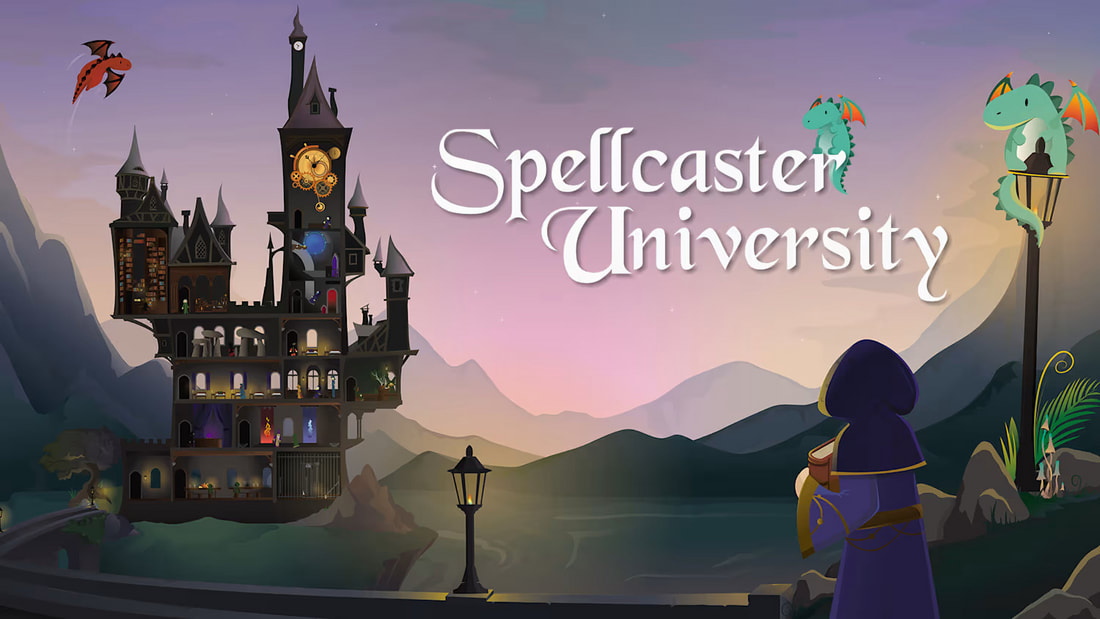
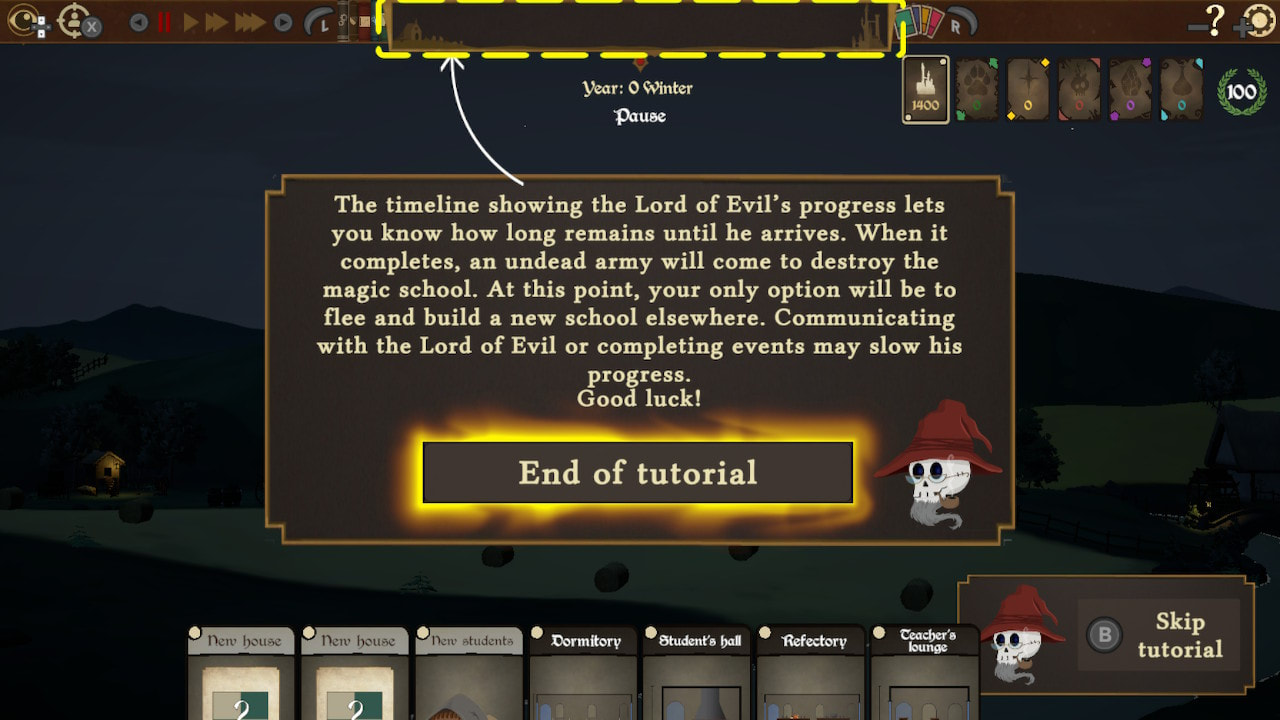
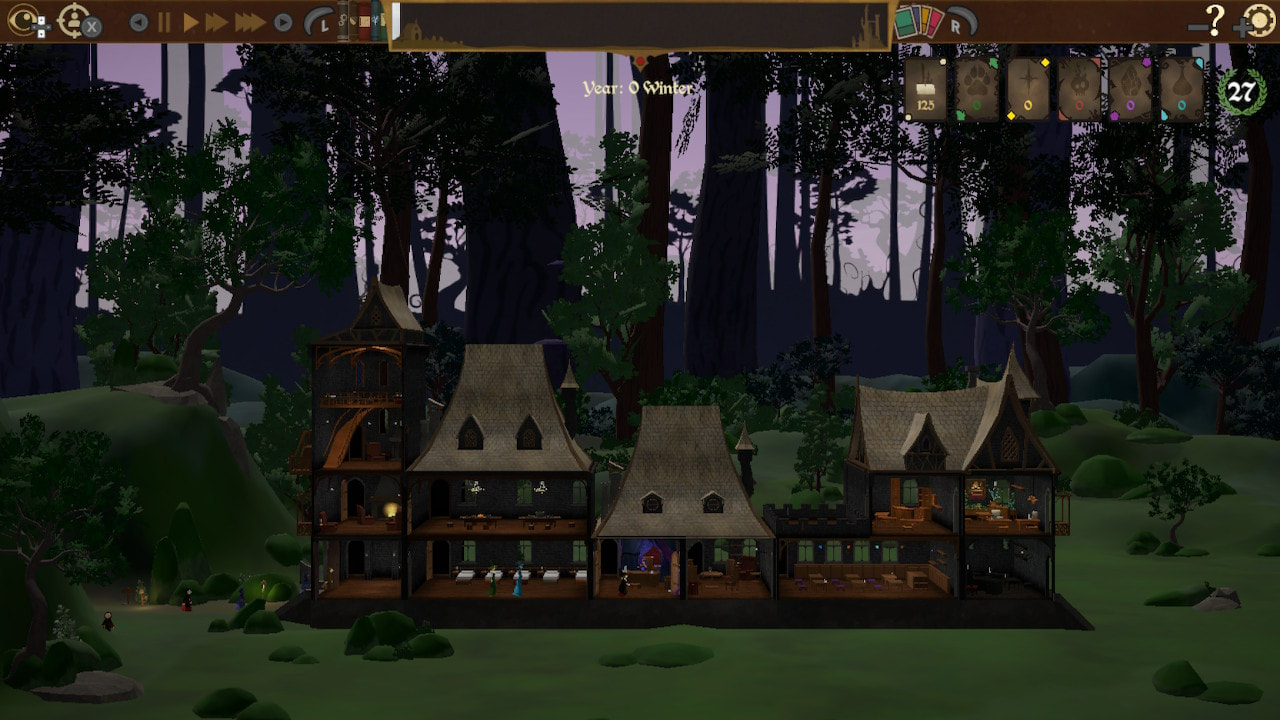
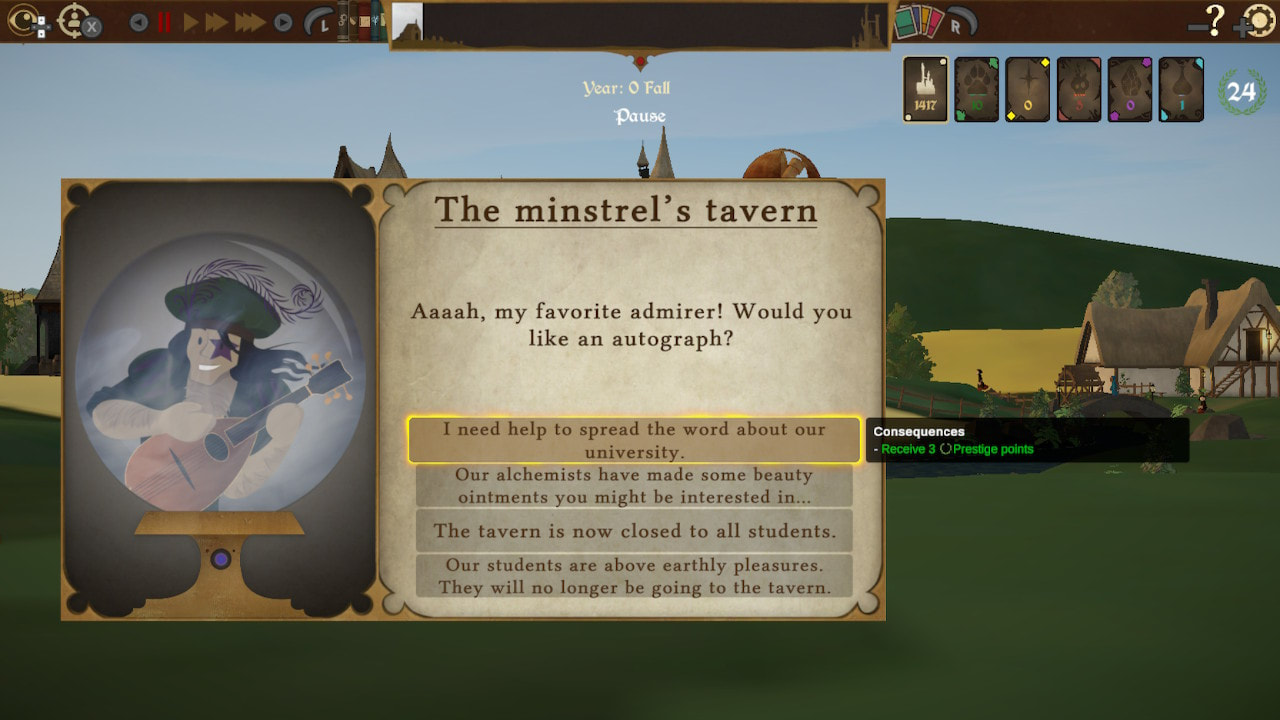
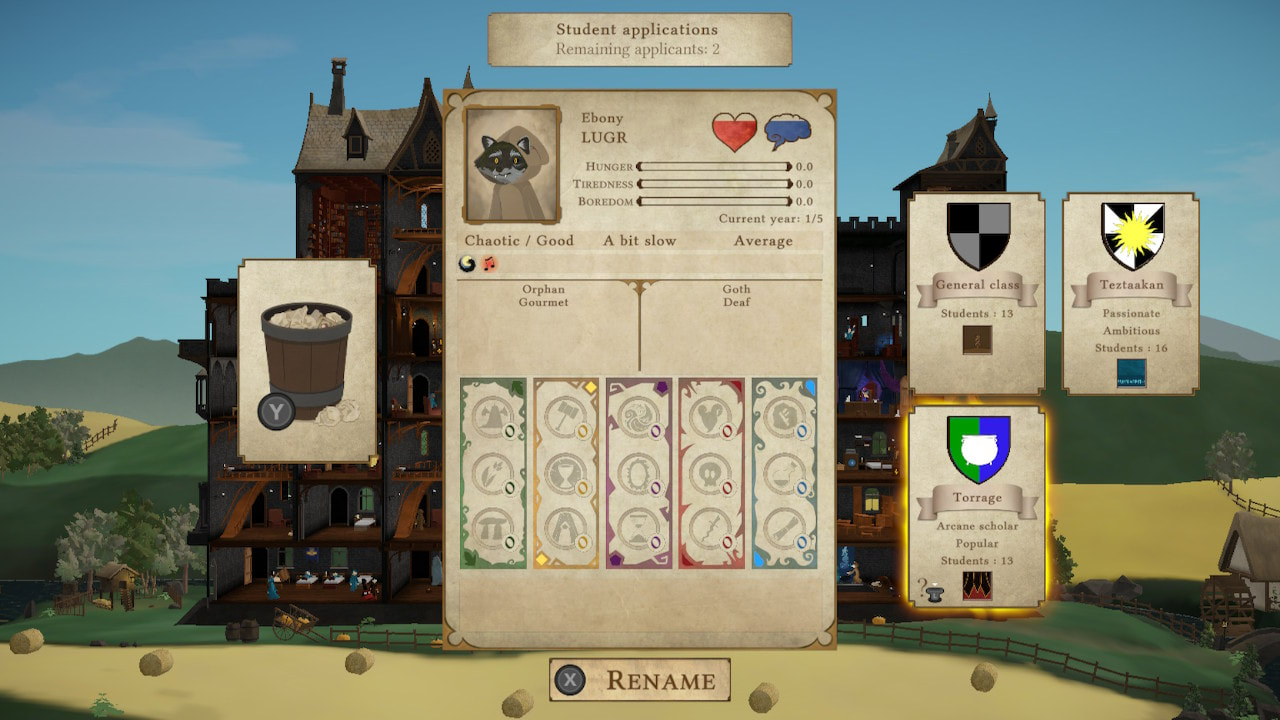
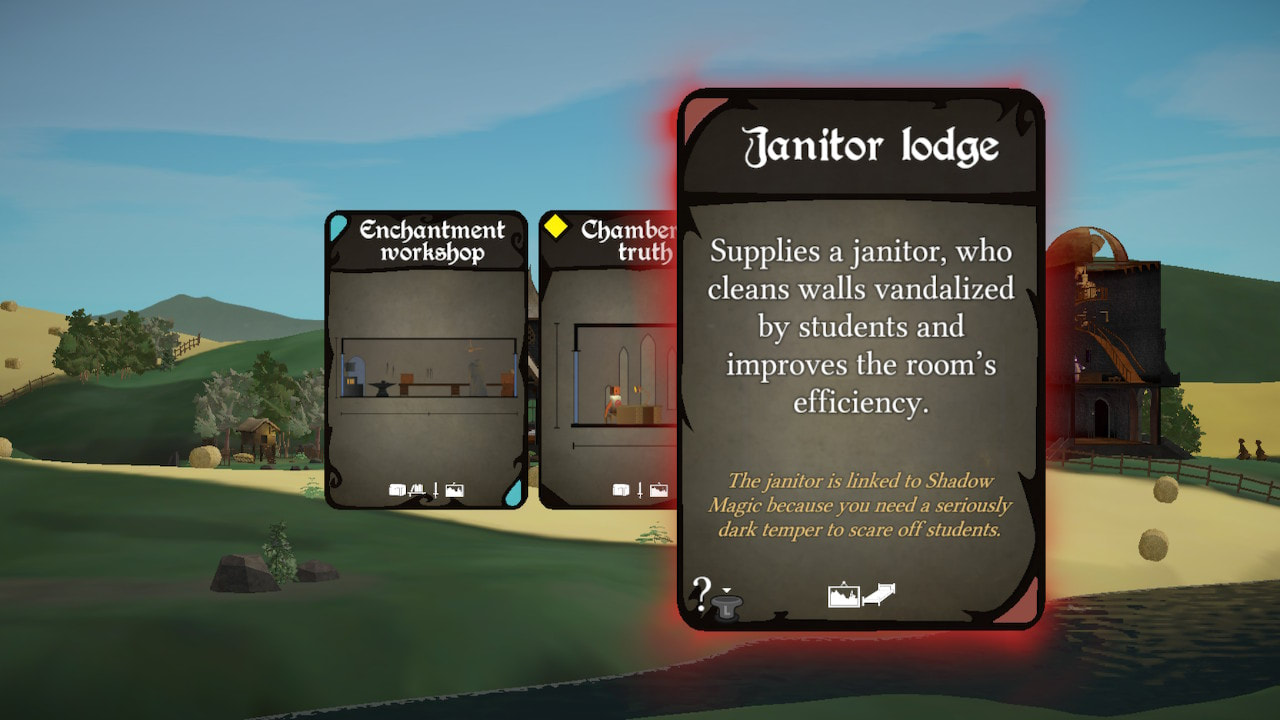
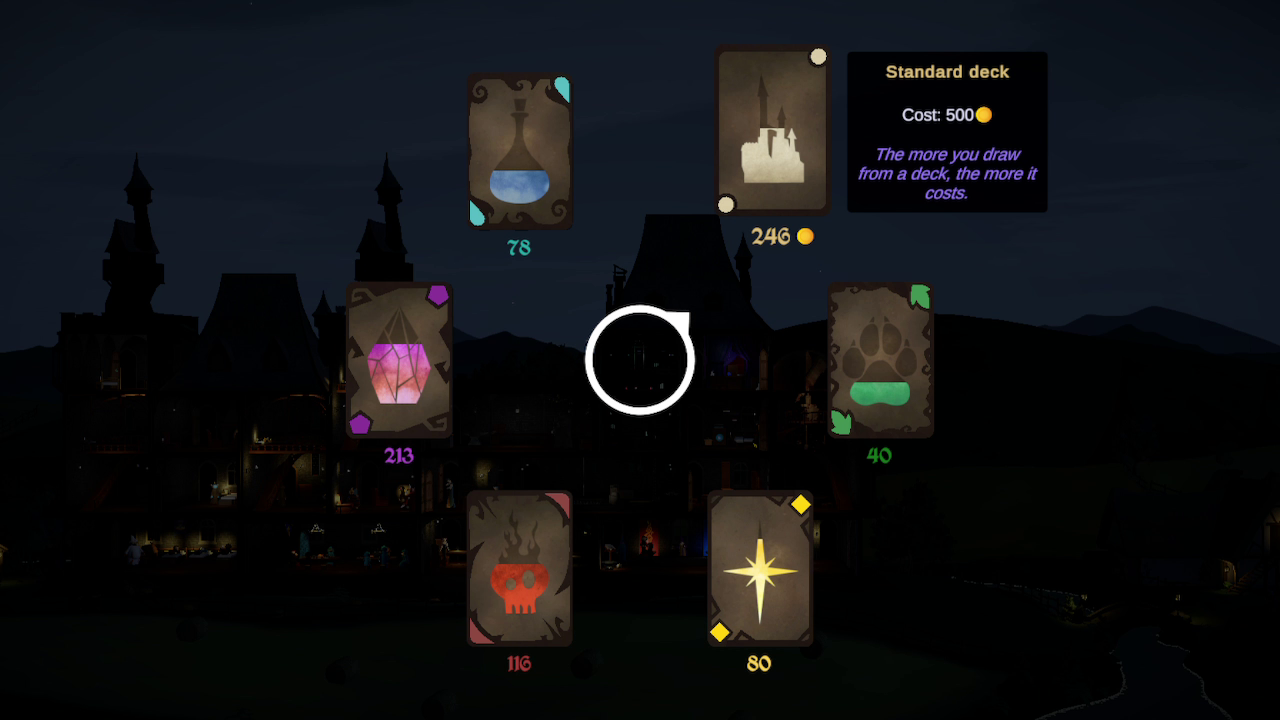
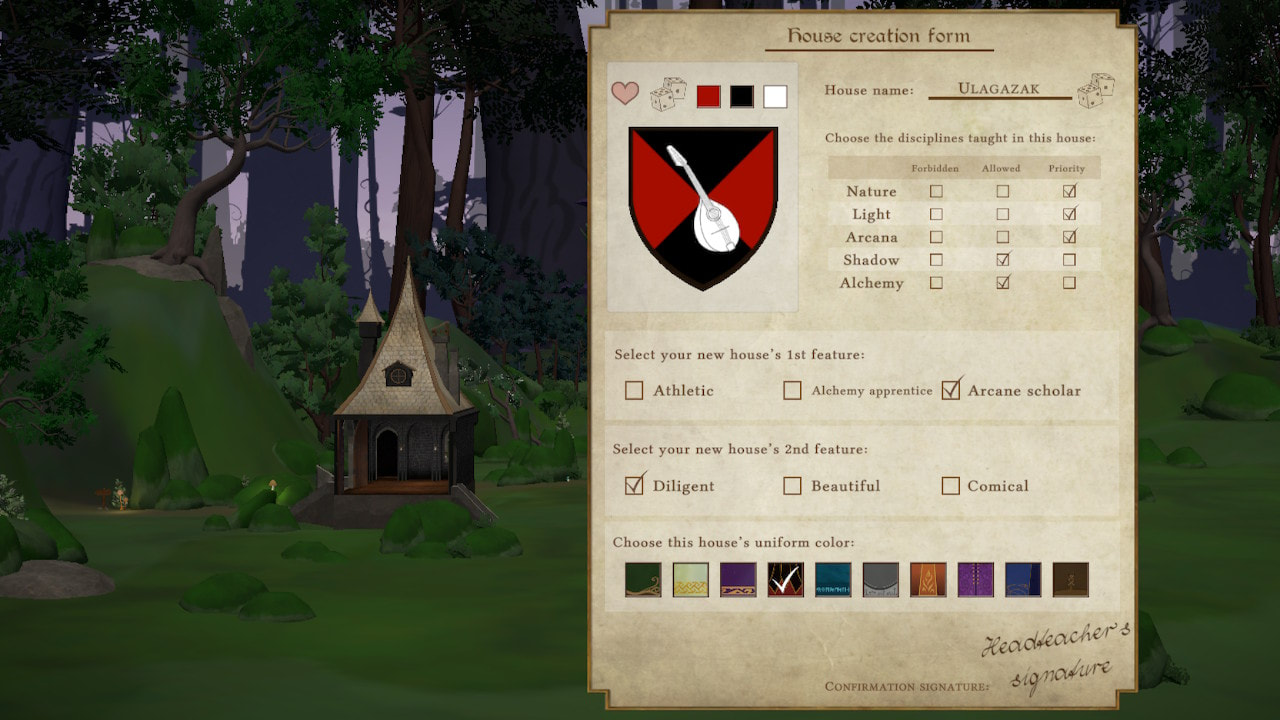
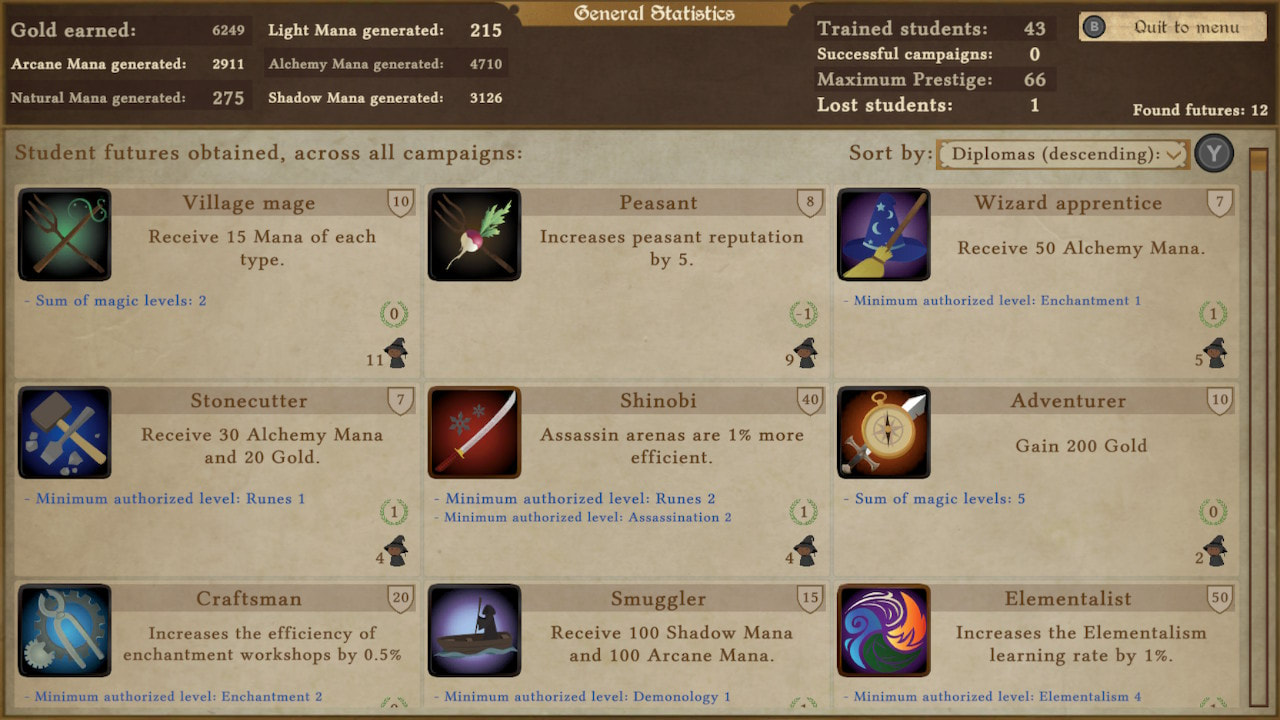
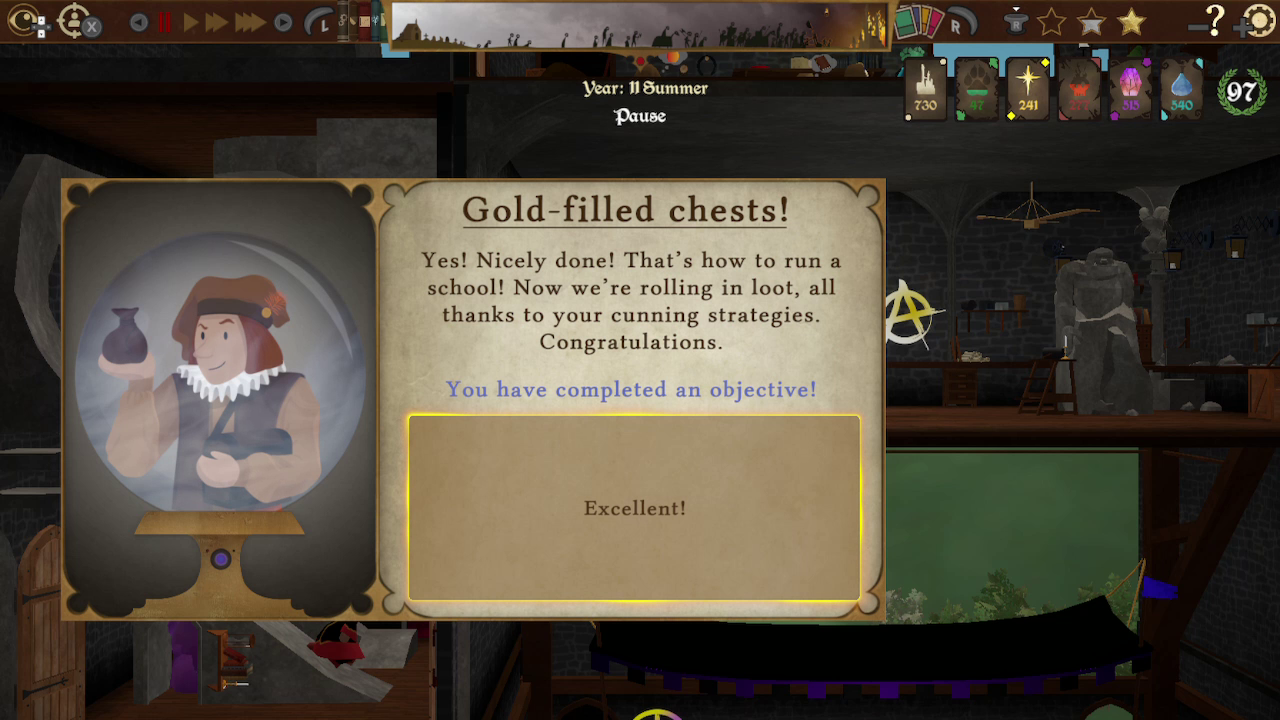
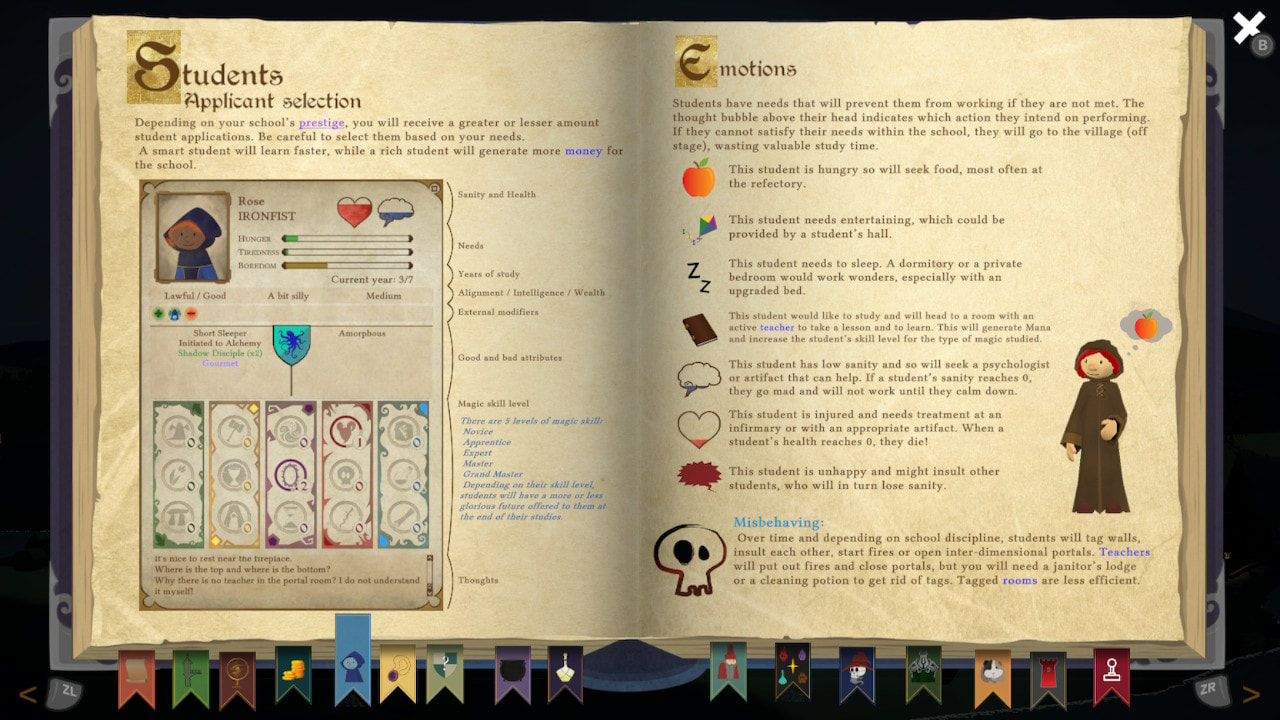
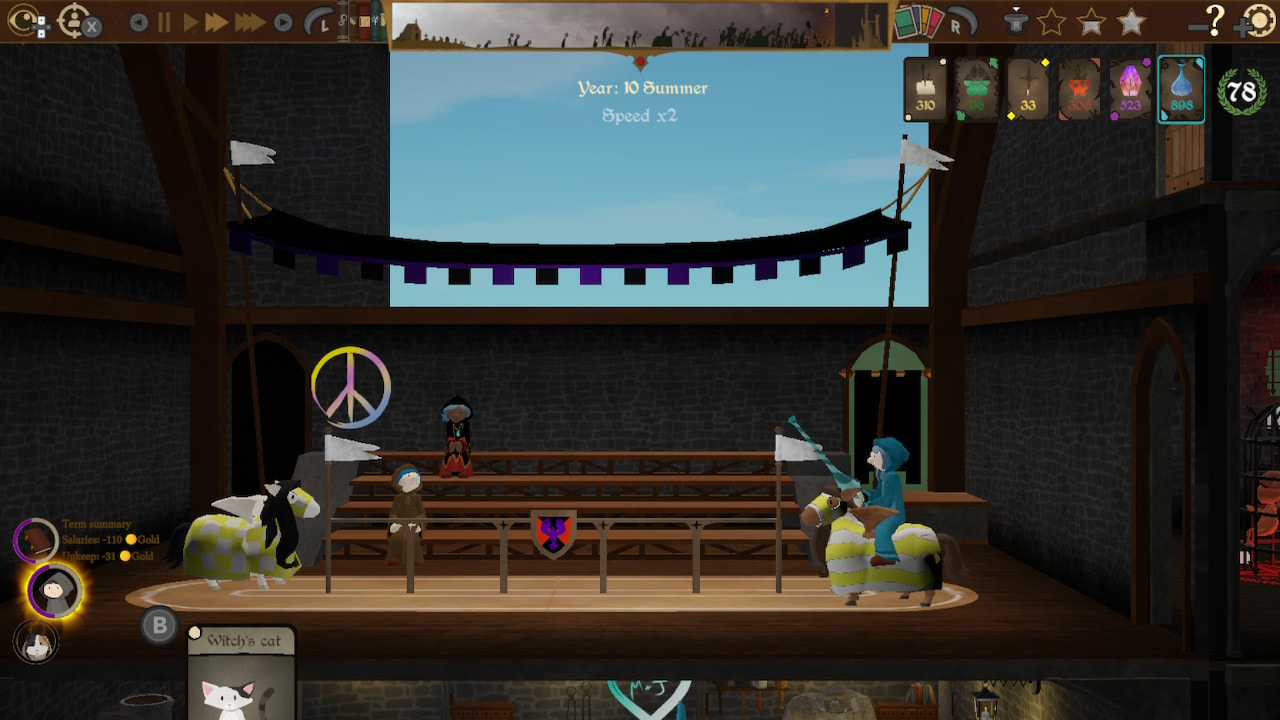
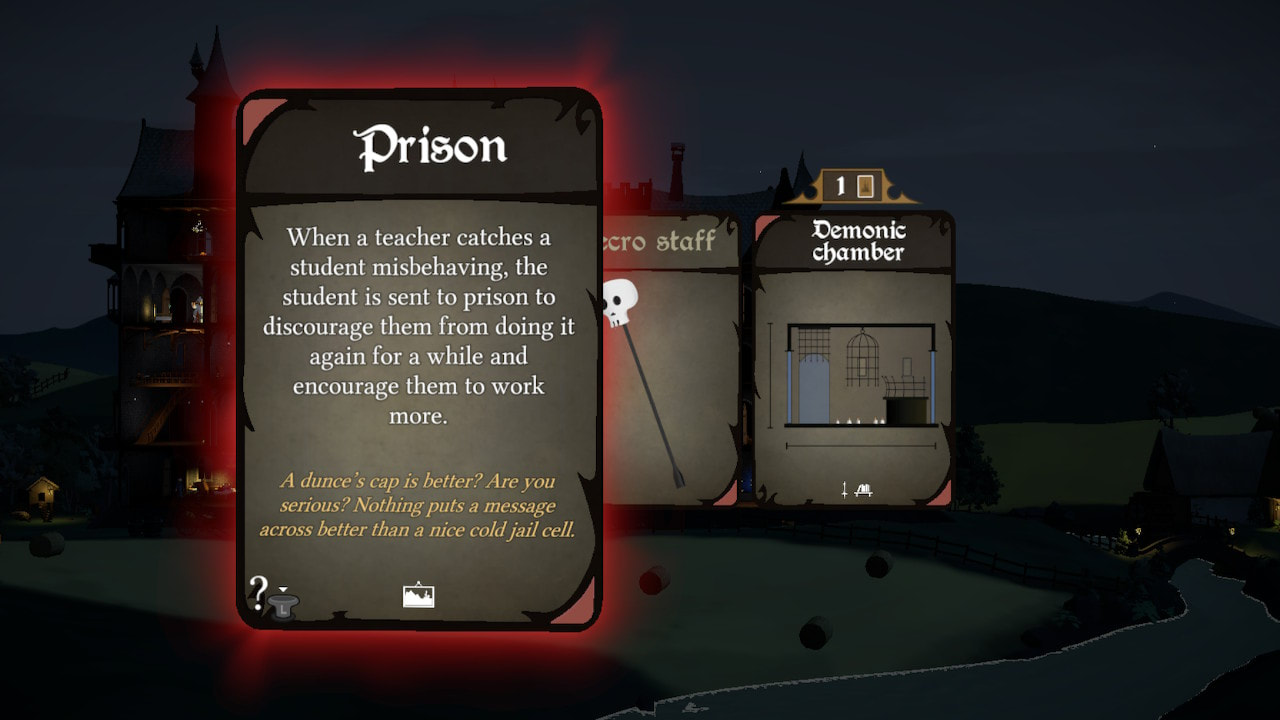
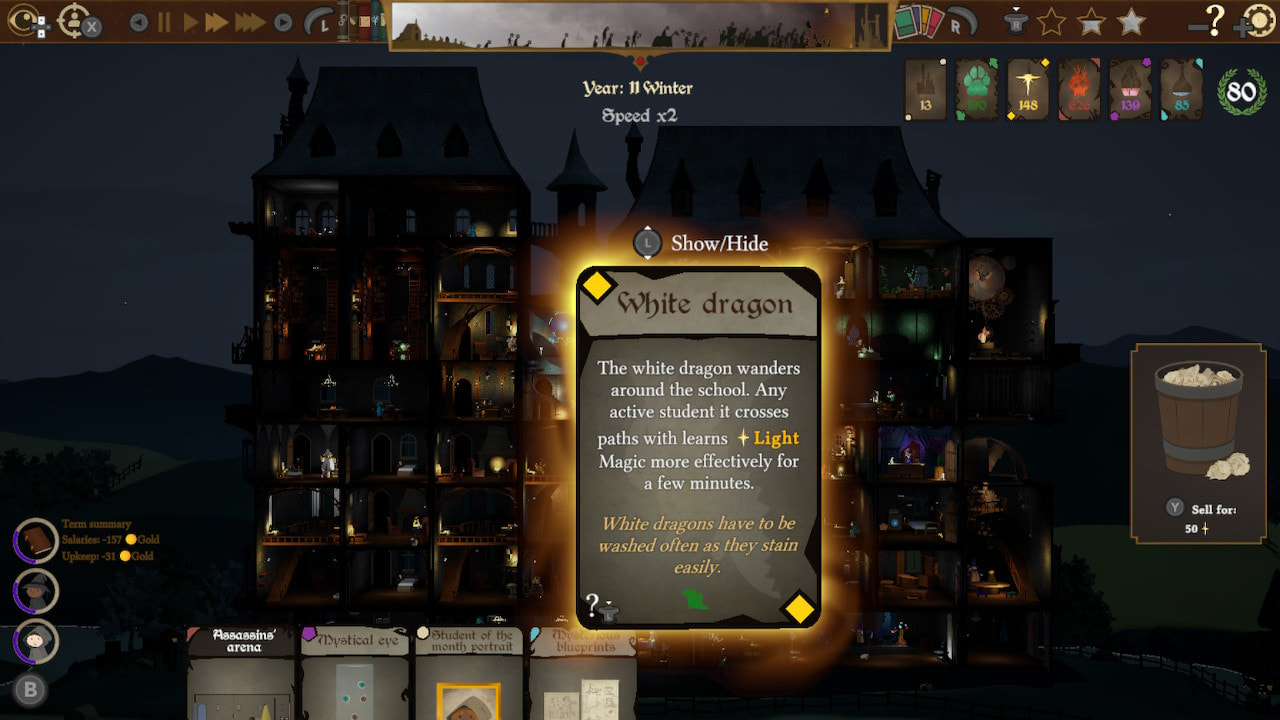

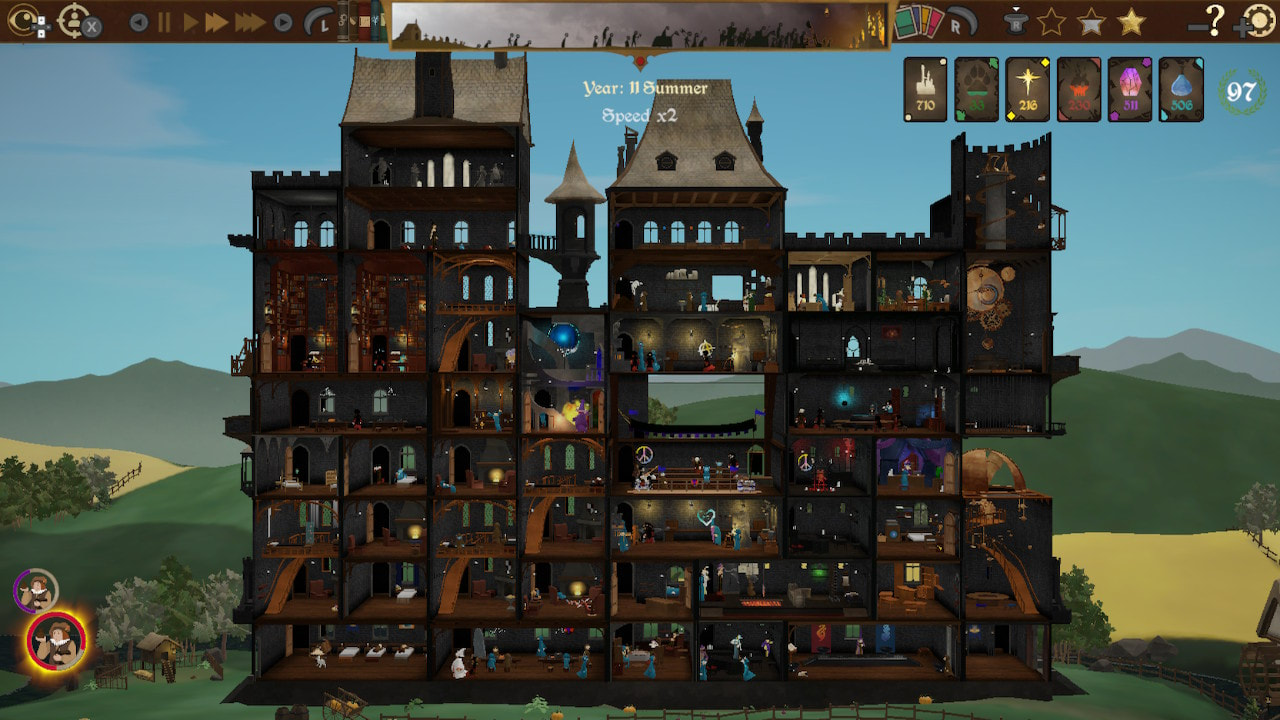
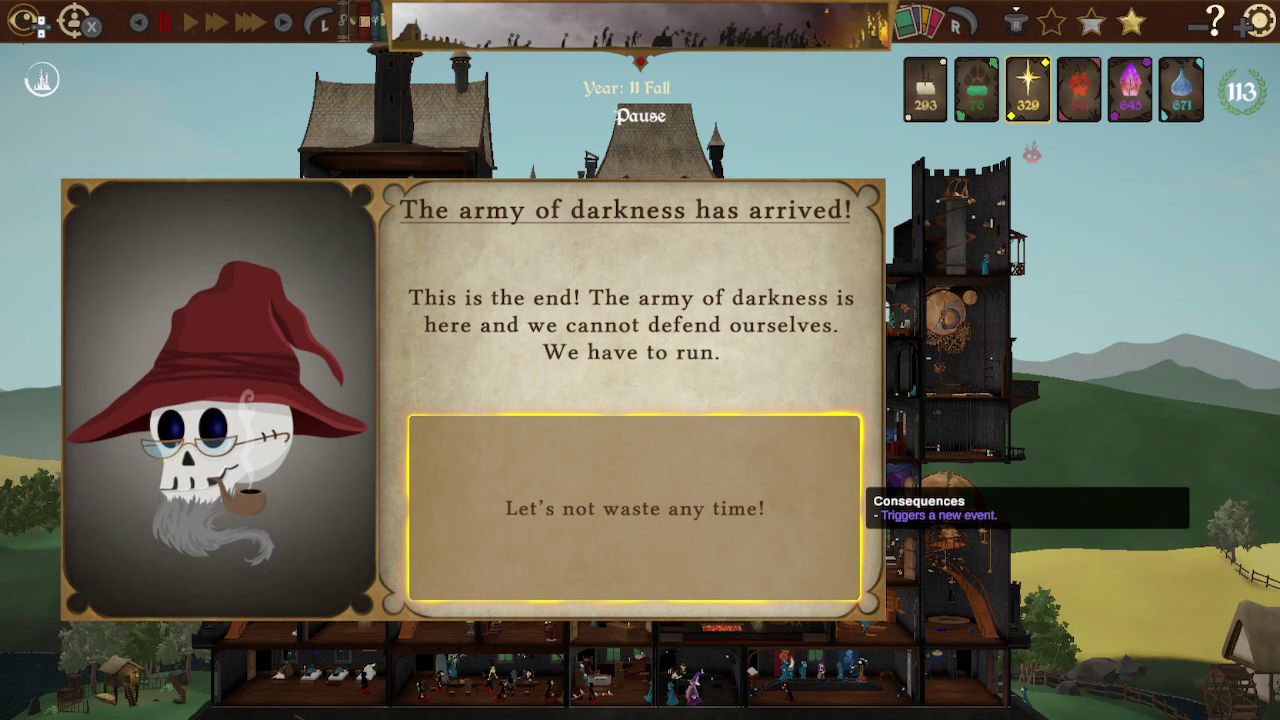


 RSS Feed
RSS Feed